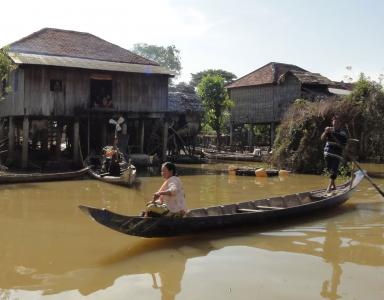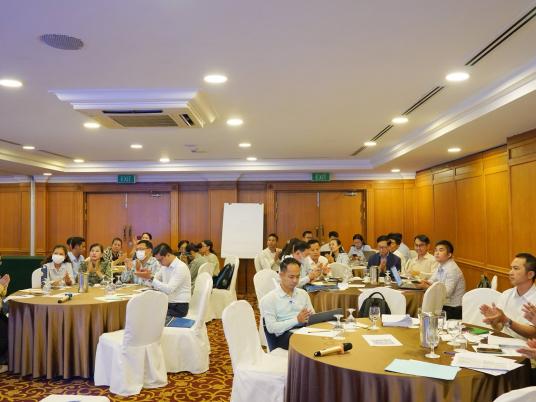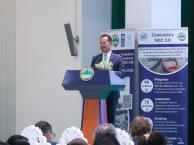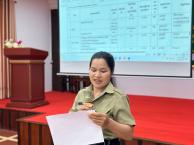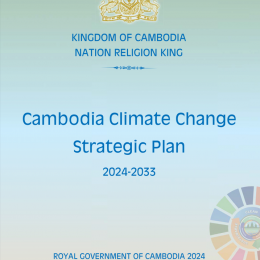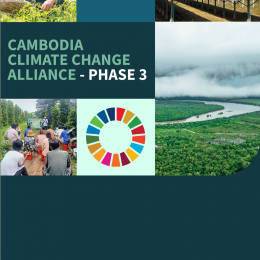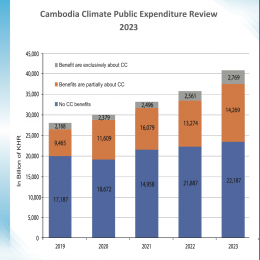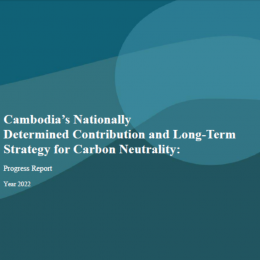Scientific evidence shows that Cambodia is facing climate change:
The fourth assessment report of the Intergovernmental Panel on Climate Change (IPCC) published in 2007 stated clearly that planet earth is facing anthropogenic climate change. Cambodia is not immune to this global crisis, but the degree to which Cambodia is causing climate change and suffering from climate change is different from other countries. Climate change is caused by the rising of atmospheric greenhouse gas, which Cambodia emits far lower compared with average greenhouse gas emission in the region and the world. However, the adverse effects of climate change have dampened socio-economic development efforts and achievement made so far.
There are rigorous scientific studies on Cambodia climate. Mean annual temperatures of Cambodia have increased by 0.8 oC since 1960, at a rate of about 0.18 oC per decade. Since 1960, the frequency of ‘hot’ days has increased significantly (with strongest increases noted in September - November), as has the frequency of ‘hot’ nights (with most robust increases noted in December-February). These are a just a few examples.
Recognizing the country’s vulnerability to the impacts of climate change and how this global phenomenon can derail the nation’s development efforts, the Royal Government of Cambodia (RGC) has set out its overall strategy for climate change response in the Cambodia Climate Change Strategic Plan (CCCSP 2014-2023). The CCCSP identifies key priority adaptation and mitigation measures to be implemented and the mechanisms to be put in place in the short and medium term. The Government has also put in place appropriate institutional arrangements and mechanisms to enable government and non-government actors to participate effectively in the implementation of the country’s response. In alignment with CCCSP, key line ministries have developed sectoral Climate Change Action Plans (CCAP) and are now implementing priority actions aimed at building the sectors’ resilience and helping the nation moving towards a resilient low-carbon development path. Likewise, local authorities and a wide range of other actors, including NGOs and the private sector, are engaging in climate change response aiming to reduce communities’ vulnerability.
At present, Cambodia's priorities are:
- to continue effectively implementing Cambodia Climate Change Strategic Plan 2014-2023, the National Adaptation Plan (NAP) and Cambodia's Nationally Determined Contribution (NDC) by providing on-going support to 14 relevant ministries and institutions who have developed action plans to mobilize resources and build partnerships, and to a wide range of other actors who are crucial to the implementation of a comprehensive response to climate change;
- to strengthen institutional and technical capacities to prepare programs;
- to identify impacts of climate change in all aspects of Cambodia's economy, as well as to define the potential to reduce greenhouse gas emissions by introducing new technologies, particularly for critical national economic sectors, such as energy, transportation, etc.;
- to enhance awareness, capacity building, and education related to climate change;
- to mobilize resources from external sources of funding, such as from Green Climate Fund can contribute to implementing priority projects in Cambodia; and
- to continue to participate in climate change international negotiations to address this significant world problem.

